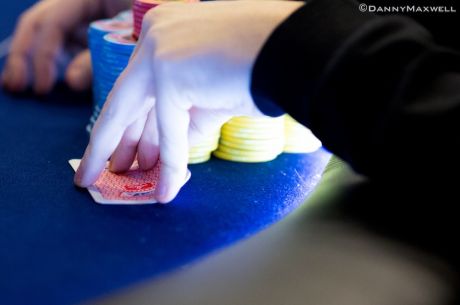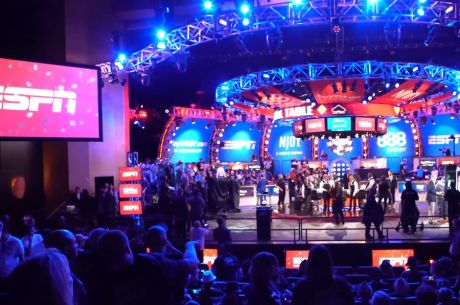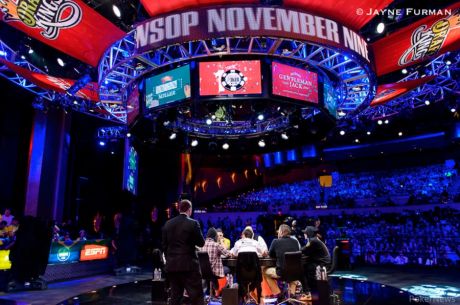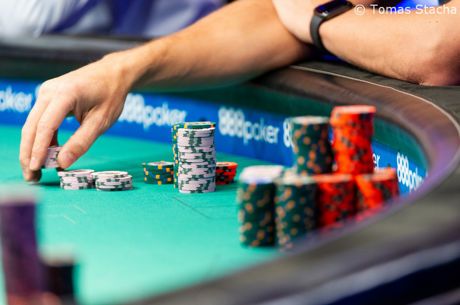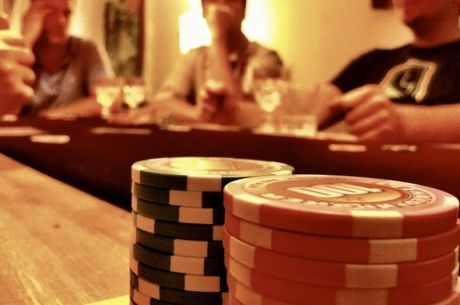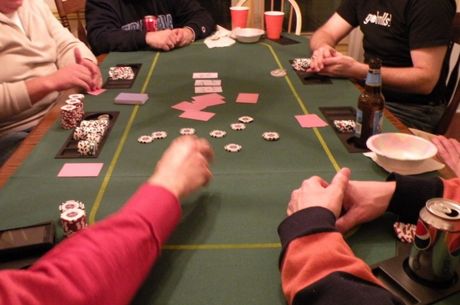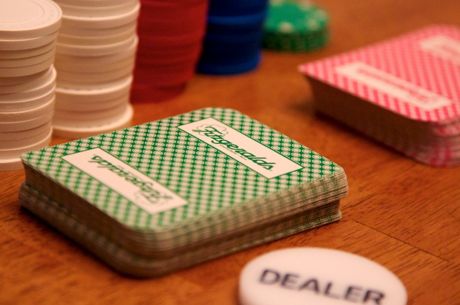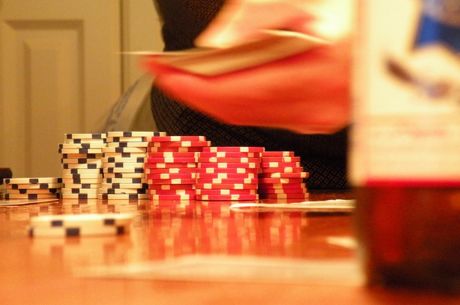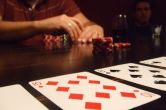Home Game Heroes: Five Winning Strategies to Succeed in Home Games
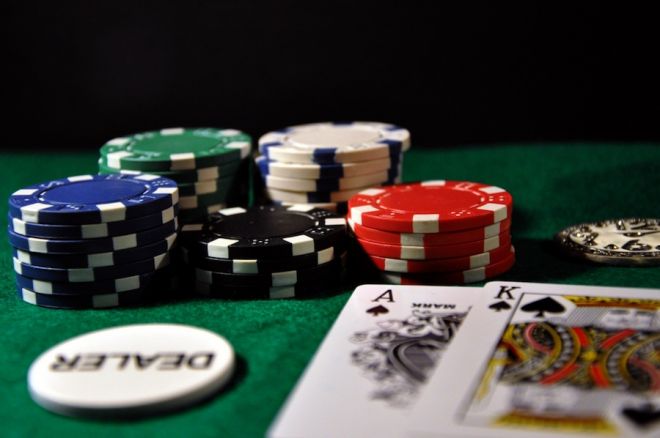
In my last column I addressed five typical foibles that cause an otherwise good player to lose in a ��great�� (or ��soft��) home game. In this column I��ll look at how you can avoid them. Just in case you forgot, I have summarized the original problems as a reminder with ��remedies�� written below each.
1. You��re Too Clever By Half
Problem: You are trying to make too many clever plays to try to confuse and exploit opponents who aren��t very strong and call too often with poor hands.
Remedy: The solution here is simple. Don��t waste tricky moves on players who are not going to understand them. Put another way, tend to play straightforwardly against relatively simple opponents.
Say you are playing seven-card stud and are dealt (5?5?) / K?. You raise on third street and get three callers. On fourth street you pick up a third five for (5?5?) / K?5?. You are against a mix of other upcards and no pair showing, and you are high on board and so act first.
You are tempted to throw your opponents off and perhaps win some extra bets by check-raising. Don��t. Bet your hand. You��ll almost surely get callers and make the pot really big for fifth street when the bets double. Those who are already in may be inclined to keep calling because of the seductively large pot. If you check with the intention of check-raising you may end up with no bettors, missing an opportunity to make lots of money.
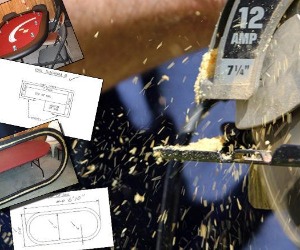
You can build your DIY poker table with just some plywood, foam, and felt. But it's not as easy as that; there's more to it. Building your own poker table encompasses a lot, so read this before you get going, as we bring you the do-it-yourself guide to building your own poker table.
Play Now2. You Play Too Aggressively For the Turf
Problem: You bring the aggressive game that works for you in a poker room to a home game and scare away passive opponents, increasing your risk without doing much for your reward.
Remedy: Against passive and timid players (often found in home games), avoid being the most aggressive player in the hand if someone else has already initiated the action or if it is a borderline decision.
For example, say the game is $1/$2 no-limit hold��em. A few early position players call, then a late position player raises to $10. You have K?Q?. In a casino against a good aggressive player, you might reraise as a semi-bluff �� perhaps to $25 or $30 �� since his raise might well have been just an aggressive ploy to win the pot. But in a home game, most of the time you are better off just calling. You may not be ahead, your aggression may well not result in a fold, and your call may win you a large pot if your opponent continues to bet against you after you��ve hit a king or queen on the flop.
Similarly, in seven-card stud raising with a low or medium pair and an exposed ace-kicker may be a good move in a casino. But in a somewhat passive home game, you are usually better off just calling along and seeing what develops.
3. You��re Seeing the Forest, Not the Trees
Problem: Having recognized you��re in a ��soft�� home game where the average level of play is low, you mistakenly play against everyone similarly and don��t take into account individual playing styles, making yourself potentially exploitable even by relatively unsophisticated opponents.
Remedy: Recognize that each player may play very differently, and that what works with one opponent may not work against another.
In one home game I��m in, I consider myself to be the best player. But one guy in the game is very loose and aggressive, and another is ridiculously passive and timid. I would be making a horrible mistake if I tried a large bluff against the former or called with a mediocre hand against the latter.
Against a loose-aggressive player, I am going to value bet him to death. Against a tight, timid weakie I am going to fold to any serious bet he makes, and bluff his shorts off. Two very different strategies for two very different bad players.
4. Not Paying Attention to the Rake
Problem: Finding yourself in a home game where an exorbitant rake is taken, making it extremely hard to come away with a profit even if you are consistently winning.
Remedy: The rake can be the difference between winning and losing, especially in home games where it may vary from zero to $8 a hand. So if your goal in playing poker is to make money, of course avoid games with rakes that are high. (As a rule of thumb, anything more than 10% with a maximum of $4 a hand is high.) And by all means seek out games with low rakes. (Keep in mind that a flat charge of $5 a half-hour is generally a lower rake than a $4 per hand maximum, if you have a professional dealer.)
The rake can also have an influence on your strategy. Where there is little or no rake, playing small ball with the goal of winning lots of small pots with early, well-timed aggression might well be the best way to go. With a large rake, such a strategy is probably a losing one, since the house is getting the best part of the bargain.
Finally, don��t be afraid of not playing if the only option is some hugely-raked game (as is often the case in New York City, for example). Consider organizing your own no-rake home game if the only alternatives are so expensive as to make the games unplayable.
5. Underestimating Your Home Game Opponents
Problem: Not recognizing that some ��casual players�� are in fact very strong, and that sometimes skilled, attentive players find their way into home games (e.g., mistaking a laid back, passive style as weakness, when it fact it is a winning strategy in a particular game).
Remedy: Just as you can��t play against all bad home game opponents in the same way, so too should you avoid assuming that your opponents in a home game are all bad.
I play in many home games. In some of them there are excellent players, as good as a typical solid player in a public poker room. I have also played against players who have hand reading and player reading skills that are better than mine. If I played against them all as if they were some average home game lug, I��d be making a terrible mistake.
Sure, most home game players you��ll be up against won��t be as good on average as the player in the tough public poker room game. But as we discussed above you need to view each player as he or she actually plays, not according to how the ��average�� opponent plays. Maybe your average opponent isn��t perceptive enough to recognize that you can check-raise bluff. But maybe your sharp-eyed tough opponent playing against you in a home game knows exactly what you��re doing, and is likely to shove against you to get you to release your hand.
Don��t let your judgment get distorted by stereotyping or over-generalizing. Use the evidence of what you have seen and experienced to guide you as you make your new reads, and stick with plays that you think will work against your individual opponents.
Ashley Adams has been playing poker for 50 years and writing about it since 2000. He is the author of hundreds of articles and two books, Winning 7-Card Stud (Kensington 2003) and Winning No-Limit Hold��em (Lighthouse 2012). He is also the host of poker radio show House of Cards. See www.houseofcardsradio.com for broadcast times, stations, and podcasts.
Photo: ��all in, tapis,�� Victor Vic. Creative Commons Attribution-ShareAlike 2.0 Generic.
Want to stay atop all the latest in the poker world? If so, make sure to get PokerNews updates on your social media outlets. Follow us on Twitter and find us on both Facebook and Google+!

